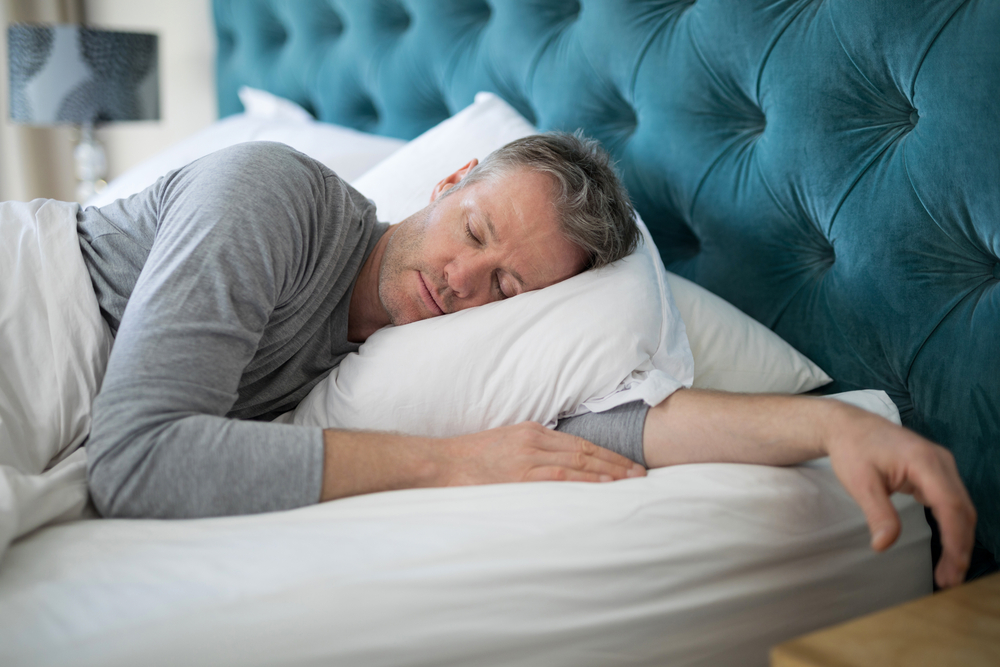Mental health disorders are, unfortunately, common among prostate cancer patients. Although it has high survival rates, prostate cancer involves years of grueling treatments and long-lasting side effects that can contribute to body image issues and lowered self-esteem. And above everything is the fear of death and cancer recurrence. One study involving over 18,000 cases of prostate cancer showed that survivors had higher incidences of mental health conditions compared to the general population. Plus, they were at higher risk of suicide. Therefore, mental health should be considered alongside cancer treatment.
Learn More

A cancer diagnosis comes with many preconceived fears. Although it can be terrifying to learn about the disease, more knowledge can lead to less despair. Proper education of this subject can help you make better informed decisions and gain a sense of control over how your treatment proceeds. Knowing all of the potential paths and outcomes can help prevent ruminating over unfounded fears. Don’t hesitate to ask questions at doctor’s appointments or ask for things to be explained multiple times.
Involve Your Primary Caregiver

Prostate cancer treatment involves a whole care team (that hopefully involves mental health professionals). One of the most important members is your “primary caregiver,” who could be a spouse, parent, adult child, or close friend. Appointments are often overwhelming, but your caregiver can join in and take notes so you don’t need to stress about understanding and remembering every detail. Their presence may also provide emotional support during difficult conversations.
Read More: Two Nighttime Symptoms That May Signal Early Signs of Cancer
Talk to a Therapist

Men are generally less likely to seek help from mental health professionals compared to women. Admittedly, there is a higher percentage of men opting for psychotropic medications over mental health services, although many don’t seek any kind of support, according to a 2024 study. However, talk therapy can help people process the whirlwind of emotions and practice coping mechanisms that could improve their overall quality of life. Some counselors specialize in helping cancer patients.
Exercise

Fatigue is a common symptom for prostate cancer patients, but don’t neglect exercise. Regular movement can help lower stress levels, clear your head, better your mood, and even improve the body’s response to treatment, studies show. If working out seems daunting or you are struggling with debilitating side effects, speak to your healthcare provider about which exercises are best for your specific case.
Read More: 9 Foods That May Help to Reduce Prostate Cancer Risk
Meditate

With all of the anxiety that tends to come with cancer, being alone with your thoughts can seem like a terrible idea. But meditation is the act of slowing down, taking a comfortable position, breathing deeply, and observing your thoughts without judgment. You can try guided meditations from YouTube, Spotify, and other platforms, or meditate on your own. This can come in the form of sitting still, slowly relaxing every muscle, and accepting how your body feels in that moment.
Socialize

Your primary caregiver may be your emotional rock during this time, but don’t hesitate to reach out to other loved ones. Spending time with friends can bring a sense of normalcy during such a chaotic time. You can open up about your progress, or take a break from medical talk and distract yourself with conversations about their lives and your shared interests. Meaningful social interaction has been scientifically proven to help mental health struggles, especially anxiety and depression, according to a 2022 review.
Read More: Men Who Neglect This Crucial Practice Face 45% Higher Risk of Prostate Cancer
Connect With Others in the Same Situation

Some people find it easier to confide in a stranger because they don’t want to “burden” their family. Many find it easier to talk to someone who is going through the same thing. There’s less explaining, more commiseration, and helpful tips for those further along in the process. Speak to your GP or oncologist about mental health support groups or one-on-one meetups for prostate cancer patients and survivors. If there are no local gatherings, check out national cancer organizations that often organize online chat groups.
Journal

You may have never kept a journal in your life, but it’s a good habit to start now. Journaling can support mental health, such as by alleviating emotional spirals and keeping track of important information, which is abundant for people with prostate cancer. Writing your thoughts out can feel validating, especially for those who express themselves better in writing. And sometimes fears seem a lot more manageable once they are on the page.
Sleep

Do not underestimate the importance of sleep when it comes to mental health and prostate cancer treatment. A lack of sleep can worsen mental health issues by causing mood swings, irritability, and poor cognitive function. Unfortunately, cancer often leads to sleep disruptions. Therefore, Cancer Research UK recommends sticking to a sleep schedule, doing exercise during the day, and relaxing before bedtime without any screens. Meditating, deep breathing, and listening to music or audiobooks before going to sleep can also help. If not, talk to your doctor about sleeping medication.
Read More: Researchers Find Possible Prostate Cancer Link to 22 Pesticides
Focus on Things Within Your Control

A prostate cancer diagnosis changes your reality in an instant. It can feel like the earth was pulled out from under you, and you have no control over your life, which is now filled with doctor visits, medications, tests, and pain. Instead of focusing on what you are losing, focus on what you can control. For example, create a schedule with pleasant activities that boost your mood and remind you of the positive things in your life.
Take Antidepressants

Depression and similar mental health conditions are more common among prostate cancer patients than the general population, according to the National Cancer Institute. Although it’s normal to feel sadness and grief, major depression usually comes in the form of symptoms continuing for two or more weeks. These include: feeling helpless, loss of motivation, feeling like a failure, low motivation, disinterest in pleasurable hobbies, oversleeping and undersleeping, issues with memory and concentration, and thoughts of self-harm and suicide. Not only can antidepressants improve depression and anxiety, research shows they can have anti-tumor effects on cancer cells.
Continue Mental Health Care After Treatment

Unfortunately, research shows that one-third of prostate cancer survivors report continued mental health symptoms after completing their treatment. So don’t quit your mental health care, whether it involves therapy, antidepressants, journaling, dates with friends, workouts, sleep routines, etc. Fortunately, many anti-depression and anxiety techniques are also ways to improve overall quality of life.
Disclaimer: This information is not intended to be a substitute for professional medical advice, diagnosis or treatment and is for information only. Always seek the advice of your physician or another qualified health provider with any questions about your medical condition and/or current medication. Do not disregard professional medical advice or delay seeking advice or treatment because of something you have read here.
Read More: 5 Prostate Cancer Symptoms Every Man Should Watch For

